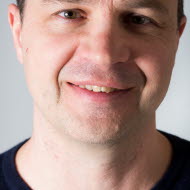Mid Sweden University Participates in New Project on Flexible and Cold‑Resistant Batteries
The FSCN Research Center is one of the participants in a new Interreg Aurora project aimed at developing innovative battery solutions for cold climates.
The project, titled Flexible and Sustainable Solid-State Batteries for Cold-Weather Electronic Applications, is a collaboration between researchers in Sweden and Finland.
– This project is crucial for us in the northern Nordic region. Electrical equipment must be able to function even in very low temperatures, says Jonas Örtegren, Associate Professor at the FSCN Research Center, Mid Sweden University.
Batteries for Extreme Conditions
The goal of the project is to create batteries that are both flexible and capable of delivering energy at temperatures as low as -40°C. The challenge lies in the fact that ion transport in battery electrolytes decreases in cold conditions, which limits power delivery. The solution involves innovative materials and manufacturing methods that make the batteries both flexible and functional in harsh environments. These batteries could potentially be used in flexible displays and wearable electronics, such as sensors that measure movement, pulse, or sweat.
– Mid Sweden University's role is to develop anode materials that are compatible with the solid electrolyte and the cathode. We aim to create a flexible anode that meets the requirements of the project, explains Jonas Örtegren.
A Nordic Collaboration
The project is a collaboration between Luleå University of Technology (LTU), Mid Sweden University, and two research groups at the University of Oulu, which also serves as the project coordinator. Additionally, five companies are involved in monitoring the project, two of which are affiliated with Mid Sweden University. Each university contributes its expertise: Mid Sweden University focuses on anodes, LTU on solid electrolytes, and Oulu on cathodes and printing techniques.
– It’s very exciting that we now get to collaborate with Luleå and Oulu. We hope this project will lay the foundation for long-term partnerships in both research and education, says Jonas Örtegren.
Funding and Future Prospects
The project has a budget of approximately SEK 10 million, with Mid Sweden University accounting for about a quarter of the total. The funding primarily comes from Interreg Aurora, with additional support from Region Västernorrland and a Finnish national funding agency.
Through this project, the FSCN Research Center hopes not only to contribute to technological advancements in battery technology but also to strengthen Nordic research collaboration.
– This is a niche area, but it has significant importance for the region and our ability to use electrical equipment in cold climates. It’s exciting to see what we can achieve together, concludes Jonas Örtegren.

Contact

